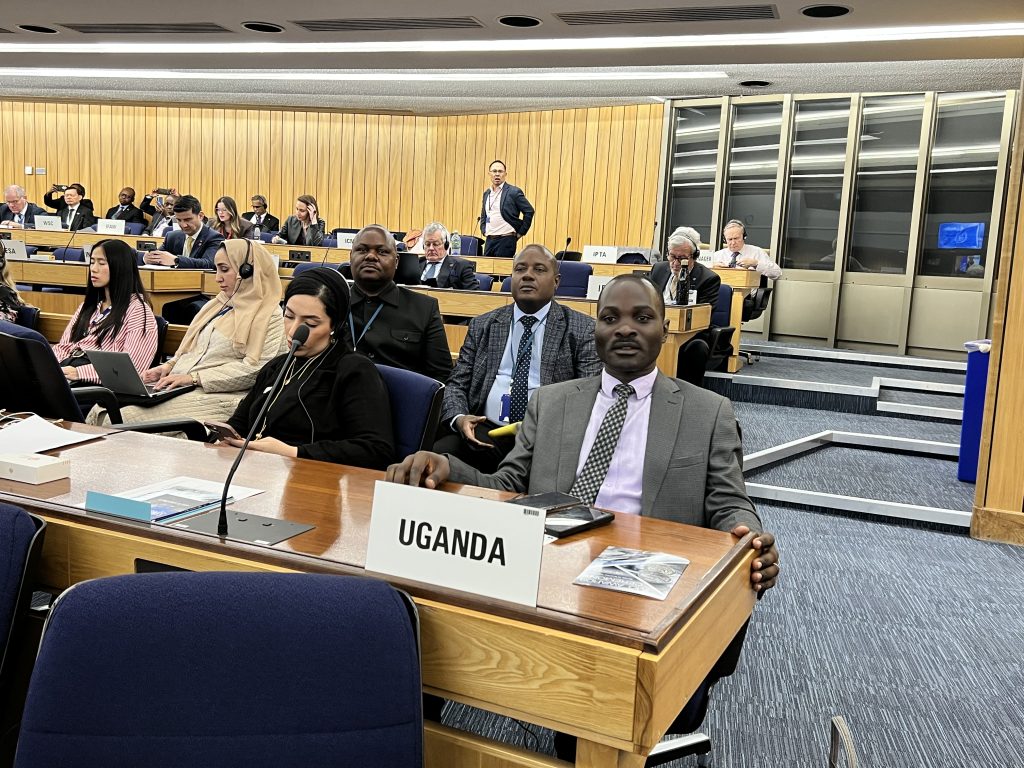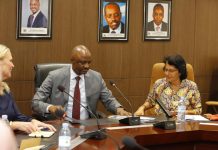Uganda has made a strong call for fair consideration of land-linked countries in global maritime discourse as enshrined in theInternational Convention on the Law of the Sea, challenging the International Maritime Organization to be a truly inclusive body and one that recognizes the diverse realities of its Member Statesand exercises inclusive maritime governance.
This call, made by Hon. Fred Byamukama, Minister of State for Transport and Head of Uganda’s delegation to the 34th Session of the International Maritime Organization (IMO) Assembly, currently underway in London.

In his statement to the Assembly, Hon. Byamukama reaffirmed Uganda’s commitment to IMO principles, including maritime safety, security, and environmental protection. He highlighted Uganda’s reliance on maritime services and regional port infrastructure in Kenya and Tanzania, noting that effective maritime governance is essential for Uganda’s trade, development, and regional integration.
The Minister commended the IMO for its vital role in global maritime governance and encouraged continued dialogue and cooperation among Member States. He emphasized Uganda’s long-standing benefits from IMO technical cooperation, including the completion of its first IMO Member State Audit (IMSAS) in November 2025; scholarships for Ugandan professionals at the World Maritime University and IMO International Maritime Law Institute; increased participation in IMO committee meetings; and various national and regional capacity-building workshops.
Hon. Byamukama underscored the unique concerns of land-linked states, arguing that despite lacking coastlines, they remain central to global trade and must be fully included in maritime policy, access to the high seas, and environmental stewardship. He stressed that equitable participation in maritime affairs is essential and that access to the sea depends on policy, infrastructure, and international cooperation—not geography alone.
“It is our considered belief that the benefits and burdens of maritime activity should be evenly distributed. To us, access to the sea is not merely a matter of geography, it is a matter of policy, infrastructure, and international cooperation. Therefore, land linked States must be empowered to participate fairly in the sustainable utilization of marine resources, navigation rights, and in issues of mitigation of marine pollution,” said Byaruhanga.
In closing, he called for an IMO that continues to evolve as an inclusive organization attentive to the diverse realities of all Member States. Uganda pledged to work collaboratively to advance a maritime future that is inclusive, resilient, and fair, recognising diversity as a strength in addressing global maritime challenges such as climate change, pollution, and safety.
Over the course of the week, the Assembly will address a broad agenda, including matters relating to maritime safety, environmental protection, the facilitation of international maritime traffic, capacity-building, and the advancement of sustainable maritime development.
This year’s session follows the conclusion of the 135th Session of the IMO Council, which set the stage for key deliberations before the Assembly. A central feature of the 34th Assembly will be the election of the new IMO Council, the executive organ responsible for supervising the Organization’s work until the next Assembly.
The Assembly, the IMO’s supreme governing body, meets biennially to set the strategic direction of the global maritime sector and to adopt decisions of far-reaching importance for international shipping.























